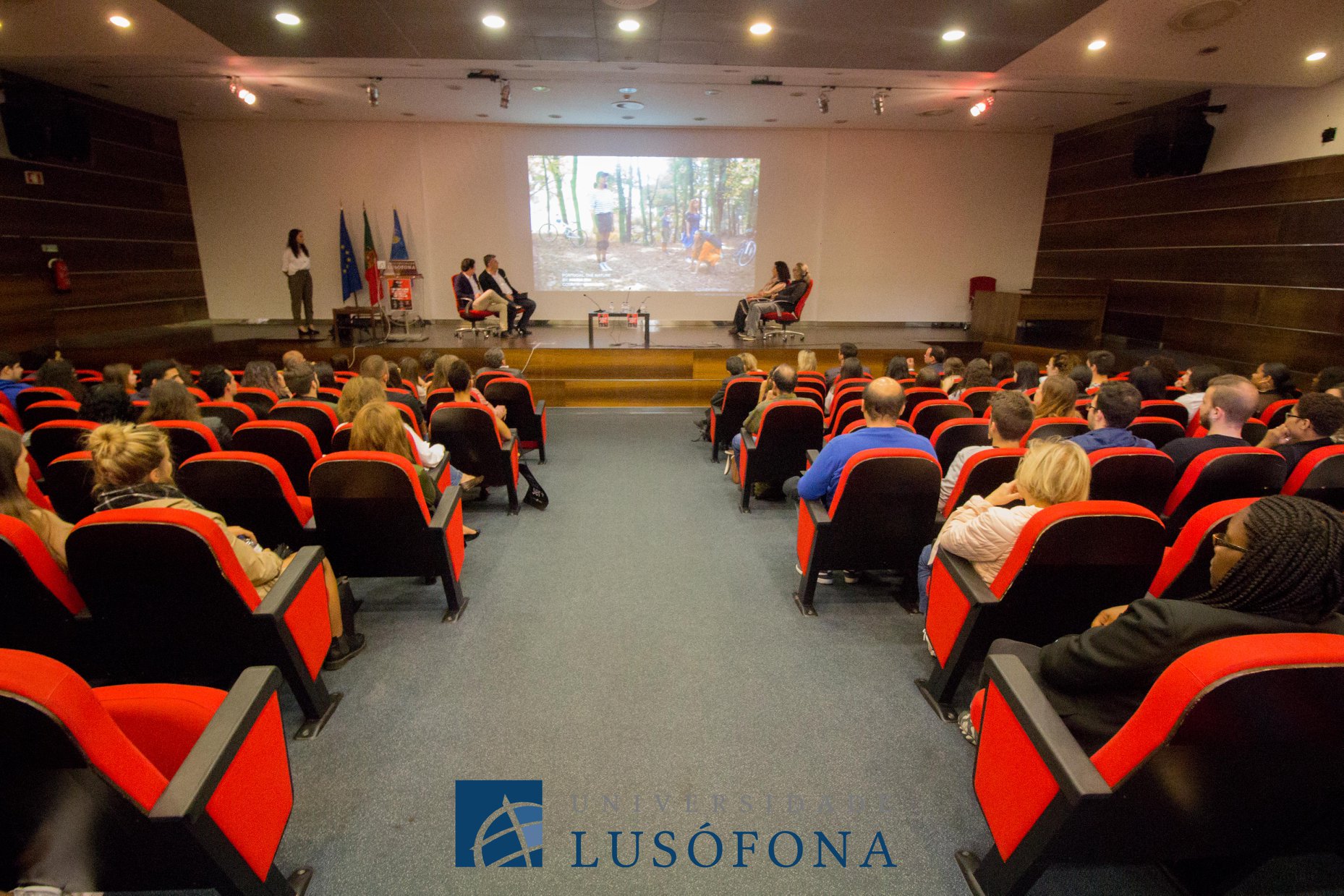Impressive! The Day Johnny Depp Showcased His Finest Storytelling Skills [Analysis]
![Impressive! The Day Johnny Depp Showcased His Finest Storytelling Skills [Analysis]](https://tomasvpstoryteller.com/wp-content/uploads/2025/07/tomasvpstoryteller-blog-impressive-johnnydepp-finest-storytelling-skills-analysis-cover-770x510.jpg)
The American actor delivered a world-class performance – not on a movie set, but in a real-life dramatic scene: a trial. Let’s analyze it together.
Backstage story
It was an ordinary weekday. I sat in front of my laptop, preparing new content for my course – specifically searching for videos that offered strong storytelling examples to spark a class discussion. After many hours of failed attempts (and a few dramatic sighs of despair), I finally discovered a YouTube video that caught my attention.

“Tomás, are you serious? Watching Law&Crime Network videos?” Yes, I felt guilty. But then I thought to myself: “Let’s see what Captain Jack Sparrow has been up to.” So, I clicked ‘play’. Thirteen minutes in, and I was hooked. What I found wasn’t entertainment; it was a masterclass in real-life storytelling.
A Snapshot of the Trial
For those unfamiliar with the context: actors Johnny Depp and Amber Heard – who were married between 2015 and 2017 – found themselves in a fierce court battle in 2022, following Depp’s $50 million defamation lawsuit against his ex-partner, asserting reputational damage.
Why? On 18 December, 2018, Amber Heard published an op-ed in The Washington Post titled: “I spoke up against sexual violence – and faced our culture’s wrath. That has to change.” Although Depp’s name wasn’t mentioned, the implications were clear – and the legal wheels began to turn.
In short: it was a deeply controversial case involving two high-profile celebrities of the world of showbiz. Unsurprisingly, the case unfolded before the eyes of millions across the globe and captivated media outlets for six intense weeks.
Detail: Under the U.S. Constitution’s Sixth Amendment, criminal defendants have the right to a speedy and public trial, decided by an impartial jury, and to be informed of the charges, confront witnesses, and receive legal counsel. This principle helps explain why certain trials, especially high-profile ones like Depp v. Heard, can be broadcast live to the public.

Nevertheless, given the sensitivity of the subject – covering intimate that are emotionally draining for those involved and their families –, this article will focus solely on Johnny Depp’s communication skills. Let’s look at him not as the accused, but as a storyteller.
The Moment of Truth
Here’s what we should know before watching his so-called ‘performance’ in court:
“During his testimony on Tuesday [19 April 2022], Johnny Depp told the story of when he first met Amber Heard, which lead to their romantic relationship. Depp states he met Heard during the filming of ‘The Rum Diary’, a movie he not only acted in but also produced. Depp recalls a scene from the movie where he kissed Heard and talks about how he felt about it.” Source: Law&Crime Network.
To provide a clear structure for our analysis, we’ll draw on HBR’s article The Four Truths of the Storyteller.
Truth to the Teller
In this first dimension, the keyword we care about is authenticity; a concept deeply tied to personal branding. In fact, is the “character” embodying and conveying his values, his personality – his true essence – when telling the story? Or is he playing a role suited to the occasion? It’s a tricky question considering that the protagonist is a top-notch actor. But perhaps the best way to assess Johnny Deep’s authenticity in this context is to examine how he behaves off the stage.
Across interviews, press conferences and public appearances, Depp consistently displays a set of distinctive traits: a deep, low-tone voice, laid-back posture, seductive charisma, thoughtful reasoning, and eloquent speech. As a passionate musician, he also carries an “artist aura” – a creative and experimental attitude to life, enriched by consciousness, introspection, and – this is a nice one – introversion.
However, his struggles with substance abuse have led some to question his mental health, which, by extension, may lend credibility to the accusations made against him. At the same time, one can argue that Depp’s dark side taught him to express his vulnerable side without fear – sharing the highs and lows of his journey with raw honesty.
Now, with that context in mind, let’s step into the courtroom.

The first question addressed to him is open-ended: “Can you please tell the jury how you met Miss Heard?” In other words: Depp is granted carte blanche to shape the narrative as he wishes, and – this is crucial – with no rush.
Min 0:15: “Around 2008 Hunter Thompson and I were going through some of his manuscripts of his books…”
From there, he recounts the process of adapting The Rum Diary into a film, from financing, scriptwriting, directing to casting (where Heard enters the picture). One thing that stands out is how thorough and articulate he is when telling those events. He recalls an astonishing level of detail. Yes, he’s eloquent; but he also gives a lot of context; too much context if we consider most public-speaking scenarios. But here, it might make sense.
Along with that, Depp taps into one of storytelling’s most powerful tools: visualization through interaction. He brings scenes to life with dialogue, inner thoughts, dilemmas, and vivid imagery. Remember the red bra scene in the nightclub? Only someone like Johnny Depp could tell that that story in a courtroom with such ease 🙂
Min 9:52: “I was on set the day they were shooting that… I remember telling Mrs. Heard: ‘Hey! You don’t have to… you don’t have to take your clothes off’.”
Curiously, he doesn’t lean on dramatic emotion. No raised voice. No big fluctuations. No overacting. Instead, he appears calm, consistent, and measured.

This brings us to another key trait: his rhythm. Depp seems to weigh every word he says – not out of pressure, but because that’s how his mind seems to work. As a creative and introspective thinker, he likely sees a flood of images at once and needs time to organize them. Hence the silence, the pauses, the repetitions: a “stop-start” cadence that has become a signature of his brand. Whether intentional or not, this slow rhythm – paired with his low tone of voice – creates suspense. It draws listeners in.
Min 5:43: “She… she came to my office, I took one look at her and I thought: ‘yep… that’s… that’s the Chenault that Hunter wants. That’s the one’.”
Finally, let me examine his non-verbal language. Depp’s eyes often drift to a fixed point, as if he’s momentarily detached from the room. This could be a sign of deep concentration – his way of accessing memory. He also tends to look down, reinforcing the impression of someone introverted and emotionally exposed.
Verdict: All things considered, Johnny Deep stayed true to himself. And in doing so, he embodied the first Truth of the Storyteller.Truth to the Audience
Managing perceptions and expectations of our audience is half the battle in storytelling. After all, people are sacrificing their time to listen, and they expect us to deliver on the promise of our message. As HBR puts it:
“The great storyteller takes time to understand what his listeners know about, care about, and want to hear. Then he crafts the essential elements of the story so that they elegantly resonate with those needs, starting where the listeners are and bringing them along on a satisfying emotional journey.”
So how does this principle play out in Johnny Depp’s courtroom performance? Let’s first identify his audiences – one direct, two indirect:
1. Direct audience: The Jury
2. Indirect audiences: Amber Heard and the General Public
1. The Jury

The jurors are the primary audience. They’re the decision makers – the ones who will decide whether Depp’s defamation claim is legitimate or not. And they’re a unique group: fact-driven, analytical and trained (formally or informally) to detect inconsistencies, emotional manipulation, and narrative gaps. They don’t care about celebrity status; they care about credibility.
How does this panorama affect the storyteller? He must earn their trust. His personal brand – expressed through his storytelling – needs to project confidence, transparency, and emotional stability. Sure, he can pull the emotion trigger, but not too much. Overplaying it risks sounding performative or even pathetic.
Interesting news: Depp seemed to strike the right balance. Reports following the trial noted that several jurors found him more believable and authentic than Amber Heard, with some even describing his testimony as “entertaining”. Not surprising, right?
2.a) Amber Heard

The ex-wife. This is the most emotionally charged audience. Both parties are in the same room, unable to speak directly to each other, yet forced to relive deeply personal memories. Pressure is on. Tension is in the air.
And yet, Depp’s tone toward Heard is marked by respect, integrity, and maturity. No personal attacks. No sneaky arguments. No character disqualification. In fact, he often highlights her positive traits with a smile.
Min 4:15: “And he was… he wasn’t sure about her capabilities as an actress”
Min 6:07: “And so we spoke and she was the sweetest pie: pleasant […], intelligent, literate, very good taste”
He could have chosen harsher words. But he didn’t. That politeness speaks volumes. Also worth noting: he never makes eye contact with her. That feels intentional – perhaps a boundary, or a quiet act of self-protection, recommended by his lawyers.
2.b) The General Public

Despite the media frenzy and reputational stakes, Depp doesn’t seem overly concerned with public opinion. His focus appears to be on getting through the trial and reclaiming his narrative. He’s not performing for the cameras – he’s telling his story, on his terms.
Verdict: All things considered, Johnny Depp remained true to his audience(s). He adapted his tone, content, and delivery with precision – earning trust without pandering, and showing restraint without losing authenticity.Truth to the Moment
Preparation and spontaneity may seem like opposites, but in storytelling, they’re partners in crime. They’re two paths that eventually intersect, leading to the same destination: a powerful, memorable performance.
As storytellers, we will always face moments that catch us off guard: a last-minute meeting; an unexpected question; a forgotten note. In those moments there’s no solution but to improvise. And that’s okay. In the short-term, we manage our nerves. In the medium, long-term, we gain wisdom. We learn to respond with grace, not panic.
At the same time, practice is what makes improvisation possible and effective. The more we rehearse, the more we internalize processes: the structure gets clearer, the storyline coherent, and the body language smoother. If something happens, no worries; we embrace the moment, tailoring it to what is demanded. So when the unexpected happens, we’re not lost – we’re ready. We adapt. We surf the wave.
Now, I have a question for you: did Johnny Depp enjoy the moment? Not the courtroom itself, of course, but the act of storytelling. Was there passion? Was there presence? Did he reconnect with those memories in real time?
To answer that, we turn to his non-verbal language.

1) Smiling
Depp smiles at several points, suggesting he’s not just recounting events, but reliving them. He’s emotionally engaged, not detached.
Min 2:30: “I went to Bruce – he was a friend of mine – and I ripped him out of retirement because…”
2) Gesticulation
When describing Amber Heard’s acting and the red bra scene, Depp uses expressive hand gestures and smiles – signs of someone immersed in the moment.
Min 7:22: “There was something very important that she, I thought, felt, she needed to know about stillness…”
Min 10:37: “[…] then… if she had a red bra in her hand, when the crowd surged in on her, all she had to do was lift the red bra up out of the crowd…”
3) Facial expressions
His micro-expressions during the shower scene are telling. There’s a softness, a sparkl of nostalgia. He’s not just narrating, he’s feeling.
Min 11:49: “[…] until it was a scene where I’m taking a shower and she comes into the room… That moment was… it was… yeah… felt like something”
Verdict: Yes, Johnny Deep was true to the moment. His body language, tone, and emotional cues all point to a storyteller who wasn’t just performing, but experiencing the story as he told it.Truth to the Mission
A story without purpose is like cooking without love: it’s empty inside and tasteless outside. That’s why every great storyteller must carry a message that transcends the self – a universal truth with the power to reach hearts and transform lives.
We often associate this enduring impact with inspiring narratives: stories that foster character-building and brighten core values like leadership, tenacity, cooperation, empathy, and compassion. In a nutshell, stories with a mission are stories that move people to think, feel, and act.
Back to Depp’s case, this Truth to the Mission is perhaps the most straightforward to grasp. While the clip doesn’t explicitly state it, Johnny is a man on a mission: he wants to prove his innocence. That’s the driving force behind the defamation trial, and the reason he chose to share his story in such detail. His goal was to fight for justice, to fight for the truth – to reclaim his voice and restore his reputation.
Did he accomplish it? Yes, he did.

“The jury found that Heard defamed Depp in three separate statements in The Washington Post piece, and that Depp defamed Heard with one statement his attorney made.
The jury awarded Depp $10 million in compensatory damages and $5 million dollars in punitive damages. The jury awarded Heard $2 million in compensatory damages and no money for punitive damages.
Depp sought $50 million in damages and Heard sought $100 million. Punitive damages in the state of Virginia are capped at $350,000, so the judge reduced the punitive damages award to that amount.
The verdict is a “tremendous” legal win for Depp and a repudiation for Heard, according to CNN Legal Analyst Joey Jackson.”
Verdict: Johnny Depp stayed true to his mission. He told his story with purpose, and the result spoke for itself.His final words on the case, shared in a statement on Instagram, typed in a screenwriting font, felt like the closing scene of a long, painful chapter. A symbolic fade to black.

Final Verdict
As we’ve seen through the lens of The Four Truths of the Storyteller, Johnny Depp’s courtroom appearance was more than a legal obligation; it was a masterclass in authentic communication. He stayed true to himself, conveying vulnerability without losing composure. He stayed true to his audience, adapting his delivery with finesse, diplomacy, and emotional restraint. He stayed true to the moment, drawing from experience while remaining fully present. And above all, he stayed true to his mission: to reclaim his voice and restore his name.
In the end, storytelling isn’t about performance – it’s about connection. And in that Virginia courtroom, Depp reminded us that even under the harshest spotlight, authenticity can be our most powerful script.







Comentários recentes